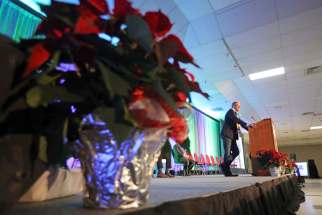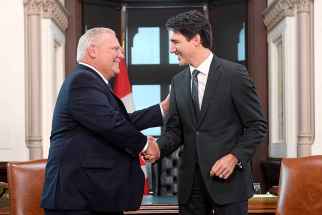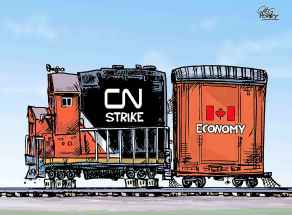Friendlier Ford abandons anti-Trudeau approach
Read this article for free:
or
Already have an account? Log in here »
To continue reading, please subscribe:
Monthly Digital Subscription
$0 for the first 4 weeks*
- Enjoy unlimited reading on winnipegfreepress.com
- Read the E-Edition, our digital replica newspaper
- Access News Break, our award-winning app
- Play interactive puzzles
*No charge for 4 weeks then price increases to the regular rate of $19.00 plus GST every four weeks. Offer available to new and qualified returning subscribers only. Cancel any time.
Monthly Digital Subscription
$4.75/week*
- Enjoy unlimited reading on winnipegfreepress.com
- Read the E-Edition, our digital replica newspaper
- Access News Break, our award-winning app
- Play interactive puzzles
*Billed as $19 plus GST every four weeks. Cancel any time.
To continue reading, please subscribe:
Add Free Press access to your Brandon Sun subscription for only an additional
$1 for the first 4 weeks*
*Your next subscription payment will increase by $1.00 and you will be charged $16.99 plus GST for four weeks. After four weeks, your payment will increase to $23.99 plus GST every four weeks.
Read unlimited articles for free today:
or
Already have an account? Log in here »
Hey there, time traveller!
This article was published 25/11/2019 (2209 days ago), so information in it may no longer be current.
Ontario Premier Doug Ford last Friday drove another nail into the coffin of the national anti-Justin Trudeau resistance movement of conservative provincial premiers.
“Let’s roll up our sleeves and start working together,” Mr. Ford said after his “phenomenal” Ottawa meeting with Mr. Trudeau.
It seems like only yesterday that conservative premiers were forming a common front to dictate terms to the prime minister. Then came the Oct. 21 federal general election, and suddenly the common front wasn’t so common anymore.
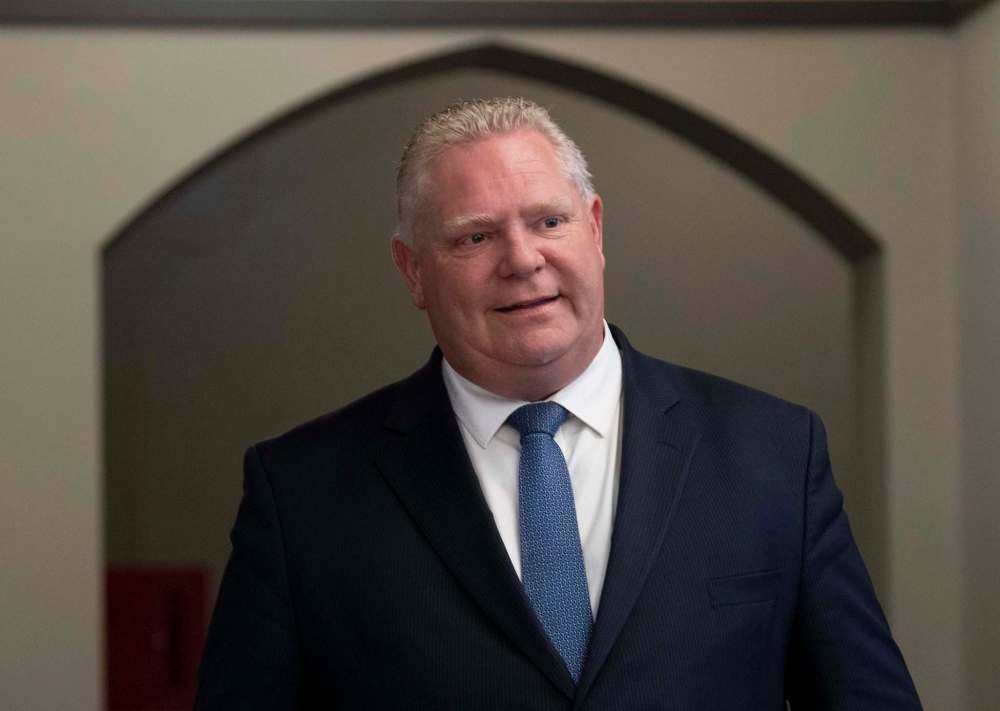
First to bail out was New Brunswick Premier Blaine Higgs. He watched his people vote for Liberal candidates and the carbon tax they were defending. Three Conservatives and six Liberals were elected, along with one Green candidate. Mr. Higgs was not about to quarrel with his own voters: the morning after the election, he said he would accept the carbon tax he had previously opposed.
Manitoba’s Brian Pallister had his sit-down with Mr. Trudeau in the first week of November, talking in conciliatory tones about the need for provinces and the federal government to unite their efforts to combat climate change. Manitoba voters had defeated three of their sitting Liberal MPs, but they re-elected four others.
On Friday, it was Mr. Ford’s turn. Liberal candidates did well in the suburban districts that had put Mr. Ford in office 18 months earlier. Ontario voters seemed to respond well to Mr. Trudeau’s unrelenting criticism of Mr. Ford’s policies but not as well to Mr. Ford’s fierce attacks on Mr. Trudeau’s carbon tax.
Mr. Ford abandoned his anti-Trudeau stance; suddenly, he and the prime minister are Best Friends Forever.
That left Saskatchewan’s Scott Moe and Alberta’s Jason Kenney as the remaining members of the anti-Trudeau common front. They were faithfully reflecting the will of their voters, who had elected wall-to-wall Conservatives (with one New Democrat in Edmonton Strathcona) by massive majorities. But the two Prairie premiers were no longer leading a national resistance movement.
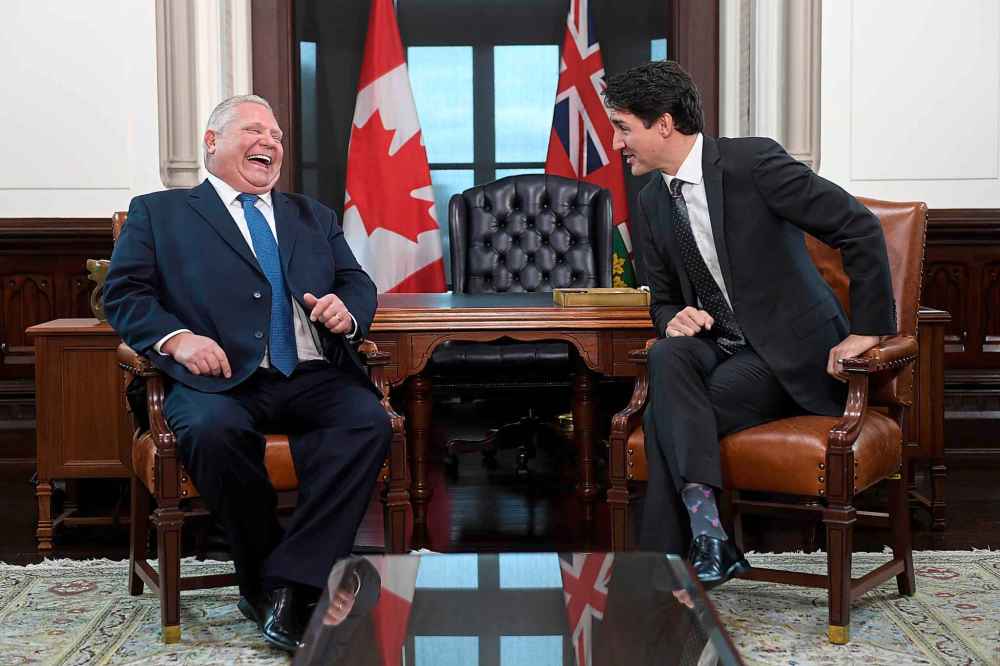
It had seemed briefly during the summer that Quebec Premier François Legault might be available as another link in the resistance chain. Mr. Kenney, however, found he could get more political mileage locally out of complaining about Ottawa’s equalization payments to Quebec and about Quebec’s objections to oil pipelines across its territory.
Deputy Prime Minister Chrystia Freeland and Mr. Trudeau’s special representative Jim Carr are now assigned to give special attention to Saskatchewan and Alberta, since those provinces failed to elect anyone to the ruling Liberal caucus and consequently sent no one to sit in the Liberal cabinet.
It seems like a thankless task. The federal election results and the consequent collapse of the conservative premiers’ common front, however, have made their task easier.
Mr. Kenney and Mr. Moe will soon recognize that they are speaking for regional grievances, not leading a national movement. They are in no position to dictate terms to the government.
Ms. Freeland and Mr. Carr should treat their Prairie critics with the greatest courtesy and respect. Grievances from Saskatchewan and Alberta, however, nether gain nor lose merit by the absence of Liberal MPs from those two provinces.
Mr. Moe and Mr. Kenney must fit their needs into a policy that a national government can defend in all parts of the country. If that involves softening their rhetoric and limiting their ambitions, they may have to learn those skills, as well.





